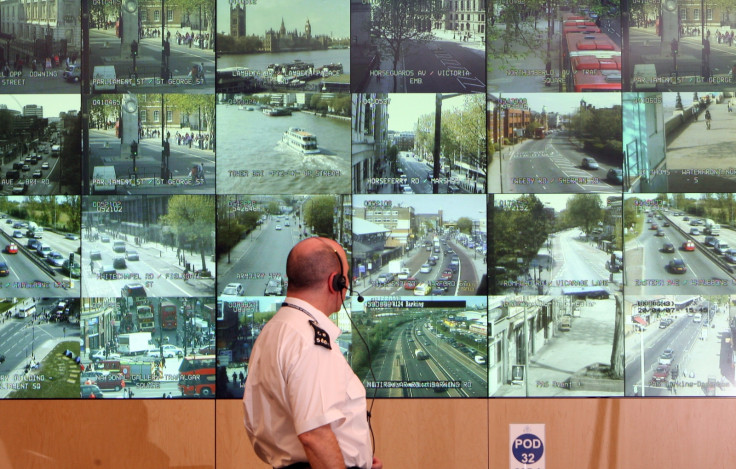Mysterious UK surveillance system will store billions of records 'without parliamentary oversight'
Law Enforcement Data System (LEDS) will collate three major databases into one.

The UK government is creating a centralised "intelligence" system that will reportedly host the Police National Computer (PNC), the Police National Database (PND) and Automatic Number Plate Recognition (ANPR) records – and no-one seems to know anything about it.
The mysterious platform, Law Enforcement Data System (LEDS), was referenced by Tony Porter, the UK Surveillance Camera Commissioner, in his annual report released on 16 November. His appraisal outlines the notion of "surveillance by consent" and analyses the use of CCTV in Britain.
Yet it also probes how public authorities and police are using surveillance equipment such as body-worn video (BWV), cameras in taxis, drones and automatic facial recognition. In most cases, Porter recommends a form of self-assessment to govern these systems.
It is a small section buried in the report where he mentions the new centralised LEDS system being constructed by the UK government. Somewhat candidly, he called the ANPR "a burgeoning surveillance capability" that is "not subject to any parliamentary oversight".
The Police National Computer (PNC) stores over 10 million records on citizens detailing past convictions, cautions and pending prosecutions. Meanwhile, the Police National Database (PND) stores "soft intelligence" about allegations and/or investigations which did not result in an arrest.
Automatic Number Plate Recognition (ANPR) is a system used by law enforcement to scan, read and check vehicle registration numbers against the police databases as they pass specific cameras. Law enforcement has never said where they are placed because this could "reduce the value" to policing.
"PNC and PND are now hosted on legacy platforms that will soon be unsupported," Porter said in his report, adding: "LEDS seeks to develop a single platform to host the Police National Computer (PNC), the Police National Database (PND) and ANPR."
On ANPR, Porter revealed the current system can scoop up between 35-40 million 'reads' a day and said it can store "upwards of 30 billion of these scans a year". The system was "growing exponentially in its functionality" and "its use as an intelligence tool is self-evident," he said.
The commissioner continued: "The legal opinion is that ANPR is lawful and is supported by provision within the Data Protection Act and SC Code. I have not been privy to that legal advice but I remain of the opinion we have a burgeoning surveillance capability on the cusp of being integrated into a new platform called LEDS."
Porter said the lack of legislation governing the collection of these vehicle records "remains significant" and added: "Whilst governance and transparency remain key issues, we are still left with a system that is not subject to any parliamentary oversight yet is one of the largest intelligence gathering tools in the world."

IBTimes UK contacted the Home Office, National Crime Agency (NCA) and Metropolitan Police in an attempt to uncover what oversight regime governs the system, what budgets are in place to expand its reach, and a timescale for any future development. There was no information to give.
The Home Office said the platform had not yet been launched and indicated it was still in the planning phase. Both the NCA and Met had never heard of it.
"There is much work to do in terms of exact detail," Porter noted in his report, adding: "The plan is to create a services channel whereby access can be provided to the data and intelligence. This will be on a permission basis whereby the sets and subsets of data can be interrogated.
"Journalists, interested parties and civil liberty groups consistently complain that, for a national system, it is increasingly difficult to obtain relevant information on efficiency, effectiveness, number of cameras in operation, etc. The advent of LEDS will increase that clamour."
There is evidence that the UK police have planned to increase the integration of their core computer systems and databases since at least March this year. Indeed the government's Modern Crime Prevention Strategy contains a small section suggesting similar plans were underway.
"We need to do much more to realise the potential of data," the report states. "In 2016, we intend to use criminality data to map criminal networks, and identify trends, patterns and relationships for further investigation."
However, policing officials have previously denied to IBTimes UK that law enforcement intends to build a 'Big Brother' style central system to hold troves of data. "There's no public or political will for that to happen," Giles Herdale, head of digital intelligence and investigation strategy at the National Police Chiefs Council (NPCC) said in June.
There does, however, appear to be an acknowledgment that technology is changing modern policing – and forces will have to adapt. "We have to work in a more joined-up way, in a more coherent way," Herdale said. "We are seeking to [...] bring capabilities across policing into a more consistent way.
"Clearly there are tools around how to look across different datasets and draw stuff out [but] there's a real balancing act to be struck. Obviously you don't have to build a massive database to effectively create powerful tools that enable you to track and monitor people."
© Copyright IBTimes 2025. All rights reserved.






















